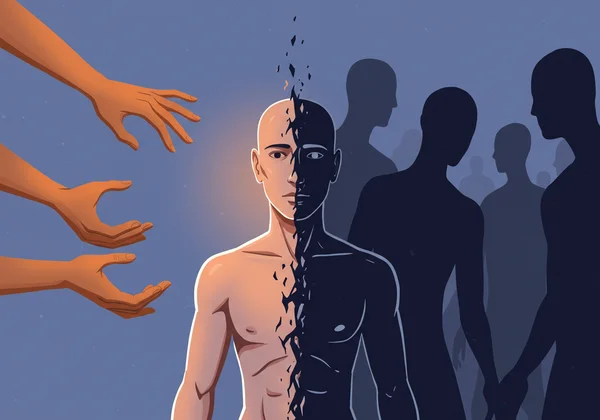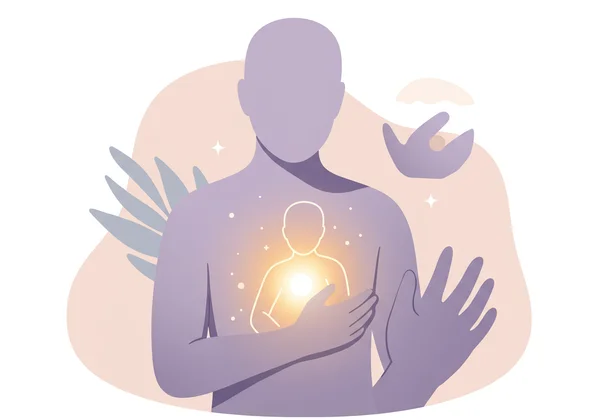Navigate AVPD & Relationships: Take Our Avoidant Personality Disorder Test
September 29, 2025 | By Elias Vance
The deep desire for human connection is a fundamental part of who we are. Yet, for many, this yearning is overshadowed by an intense, paralyzing fear of rejection. If you find yourself caught in this painful cycle—longing for intimacy while simultaneously pushing it away—you are not alone. This constant conflict is a core struggle for individuals with traits of Avoidant Personality Disorder (AVPD). This article will explore how AVPD impacts relationships and provide gentle, practical strategies to help you build the connections you deserve. Before diving in, if you're wondering if these patterns apply to you, a confidential avpd test can be a powerful first step toward clarity.
Many people ask, What are the symptoms of AVPD? Understanding how these traits manifest is key to navigating them. An online screening tool can offer initial insights, helping you distinguish these specific patterns from general shyness. Taking a preliminary AVPD screening tool can provide a structured way to reflect on your experiences in a safe, private setting.

How AVPD Traits Affect Your Connections
The influence of avoidant traits can ripple through every aspect of your social life, from fleeting interactions to your most significant bonds. It creates a hidden barrier that others may not see, but you feel constantly. This section explores the specific ways these traits can shape your relationships.
Understanding Avoidant Personality Traits in Relationships
At its heart, AVPD is characterized by a trio of powerful forces: profound feelings of inadequacy, extreme sensitivity to criticism or rejection, and significant social inhibition. In a relationship, this doesn't just mean being shy. It means constantly scanning for signs of disapproval, interpreting neutral comments as negative, and believing you are fundamentally unlovable.
This internal experience often leads to behaviors that can be confusing to partners, friends, and family. You might avoid expressing your true feelings for fear they will be dismissed. You might turn down invitations or cancel plans at the last minute because the anxiety of social engagement becomes overwhelming. This isn't because you don't care; it's because the perceived risk of being judged or rejected feels too great to bear. Understanding this foundation is the first step toward compassion for yourself and, eventually, change.
The Fear of Intimacy and Challenges in Dating with AVPD
For someone with avoidant traits, the dating world can feel like a minefield. The very nature of dating requires vulnerability—sharing personal stories, expressing interest, and risking rejection. These are the exact triggers that AVPD amplifies. The fear of intimacy isn't a fear of closeness itself, but a fear of being "found out." There is often a deep-seated belief that if someone truly gets to know you, they will inevitably leave.
This can lead to a pattern of keeping potential partners at arm's length. You might engage in witty, intellectual conversations but shut down when emotions get involved. You might end a promising connection prematurely at the first sign of a minor conflict, seeing it as confirmation that you are not good enough. If you recognize these patterns, a self-assessment can be an empowering tool. Taking a free AVPD test can offer valuable insight, helping you truly grasp the 'why' behind these behaviors.

Strategies for Building Connection Despite the Fear
Recognizing these patterns is a huge step, but the journey doesn't end there. The next phase is about equipping yourself with tools to gently challenge these ingrained fears. It's not about becoming a different person overnight, but about learning to navigate your world with more confidence and less anxiety.
Improving Communication in Avoidant Relationships
Communication is often the first casualty of AVPD. The fear of saying the wrong thing can lead to saying nothing at all, leaving partners feeling confused and disconnected. A powerful strategy is to start small and safe. Practice expressing low-stakes opinions or feelings with a trusted person.
Another helpful tool is using "I" statements. Instead of saying, "You're making me uncomfortable," you could try, "I feel anxious when the conversation turns to this topic." This shifts the focus from blame to personal experience, reducing the perceived risk of conflict. It takes practice, but each small success builds the confidence needed for bigger conversations. This journey of self-discovery begins by understanding where you currently stand—something a confidential AVPD quiz can gently illuminate for you.
Setting Healthy Boundaries and Managing Rejection Sensitive Dysphoria
Boundaries are not walls to keep people out; they are guidelines to let people in safely. For someone with AVPD, setting boundaries is terrifying because it risks disapproval. However, not having them leads to resentment and burnout. Start by identifying your needs. Do you need quiet time after a social event? Do you need to opt out of conversations that feel too personal for now? Communicating these needs kindly but firmly is a sign of self-respect.
Many with AVPD also experience something akin to Rejection Sensitive Dysphoria (RSD), where perceived rejection causes extreme emotional pain. A key strategy here is learning to pause. When you feel that sting of rejection, take a breath before reacting. Ask yourself: "Is there another way to interpret this?" Over time, you can create a small space between the trigger and your emotional response, giving you more control and peace.

Cultivating Self-Compassion and Seeking Support
The path to building healthier relationships begins from within. The harsh inner critic is often the loudest voice for those with avoidant traits. Learning to soften that voice and seek appropriate support are crucial steps toward lasting change.
Overcoming Self-Criticism and Fostering Inner Kindness
Self-criticism is the fuel for the AVPD engine. To counter it, you must actively practice self-compassion. This means treating yourself with the same kindness you would offer a good friend who is struggling. When you make a social misstep, instead of berating yourself, try saying, "That was difficult, and I feel embarrassed, but it's okay. I'm learning."
Mindfulness can be an incredible ally in this process. By observing your critical thoughts without judgment, you can begin to see them as just thoughts, not facts. This creates distance and weakens their power over you. Recognizing your unique strengths is also vital. Perhaps you are a great listener, deeply empathetic, or highly creative. Focusing on these positive attributes helps build a more balanced and realistic self-image. To better understand your traits, a structured assessment can provide valuable perspective.
When to Seek Professional Guidance for Relationship Struggles
Self-help strategies are powerful, but sometimes the weight of AVPD requires professional support. If your social avoidance is significantly impacting your ability to work, study, or maintain any meaningful relationships, it may be time to speak with a therapist. A mental health professional can provide a formal diagnosis and guide you through evidence-based therapies like Cognitive Behavioral Therapy (CBT) or Schema Therapy.
Remember, seeking help is a sign of strength, not weakness. It shows you are committed to your well-being. An online test can be an excellent, low-pressure first step before scheduling an appointment. It can help you gather your thoughts and give you the confidence to start that conversation. If you are ready to explore, start the test on our homepage.

Your Journey Towards Deeper, More Fulfilling Connections
Living with avoidant traits can feel isolating, but it does not have to be a life sentence. Your desire for connection is valid, and your fears are understandable. By learning how these traits manifest, practicing new communication strategies, and cultivating self-compassion, you can slowly begin to lower the barriers that have kept you from the intimacy you crave.
The journey starts with a single step: understanding. Gaining clarity on your own patterns is the most empowering move you can make. It provides a map for where you are and a compass for where you want to go. If you see yourself in this article, we encourage you to take our free, confidential online AVPD test today. It's a simple, private way to gain instant insights and begin your journey toward more meaningful connections.
Frequently Asked Questions About AVPD and Relationships
How do you know if you have Avoidant Personality Disorder?
While this article provides insights, the only way to get a formal diagnosis is from a qualified mental health professional. However, a reliable screening tool can be an excellent starting point. If you consistently experience intense fear of rejection, feelings of inadequacy, and avoid social situations despite wanting to connect, taking an am I avoidant test can help you decide if seeking professional advice is the right next step for you.
What triggers avoidant behaviors in relationships?
Common triggers include any situation that involves potential criticism, judgment, or emotional vulnerability. This could be meeting a partner's family, having a conversation about the future of the relationship, resolving a conflict, or even receiving a compliment, which can feel undeserved and create pressure.
How can I help myself if I have avoidant personality disorder and struggle with relationships?
Start with small, manageable steps. Practice self-compassion to challenge your inner critic. Learn about healthy boundaries and begin implementing them in low-risk situations. You can also explore therapeutic techniques like CBT on your own. Most importantly, build self-awareness. Taking a structured quiz to explore your results can illuminate specific patterns you can begin working on.
Is AVPD the same as just being shy or having social anxiety in relationships?
While there is overlap, they are different. Shyness is a personality trait, and social anxiety is a fear of social situations. AVPD is a more pervasive, long-term pattern of behavior rooted in a deep-seated belief of being fundamentally flawed and unworthy of connection. This core self-perception is what primarily distinguishes AVPD from social anxiety, though they can coexist.